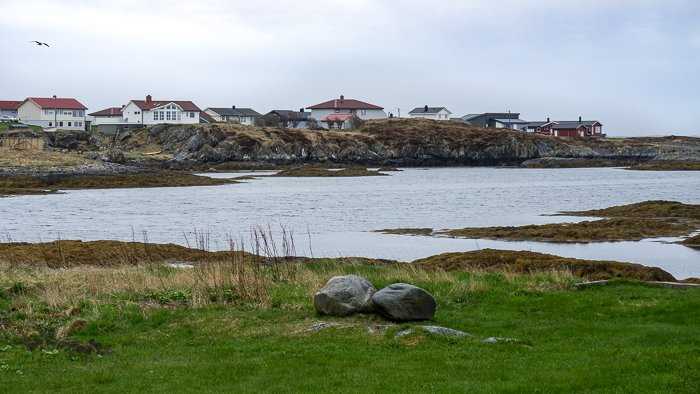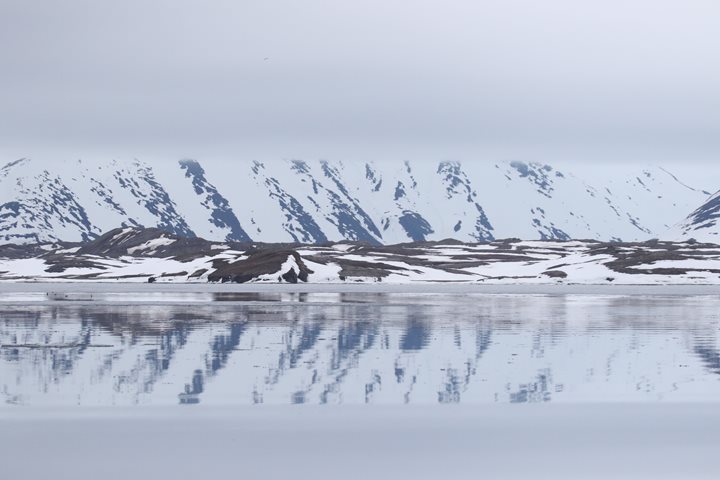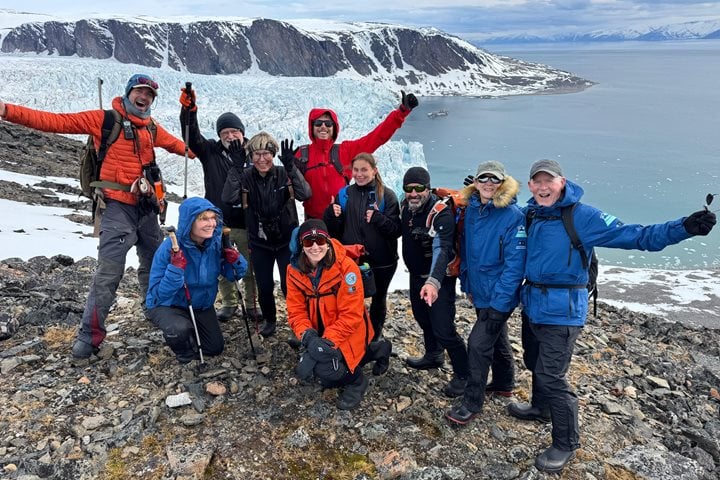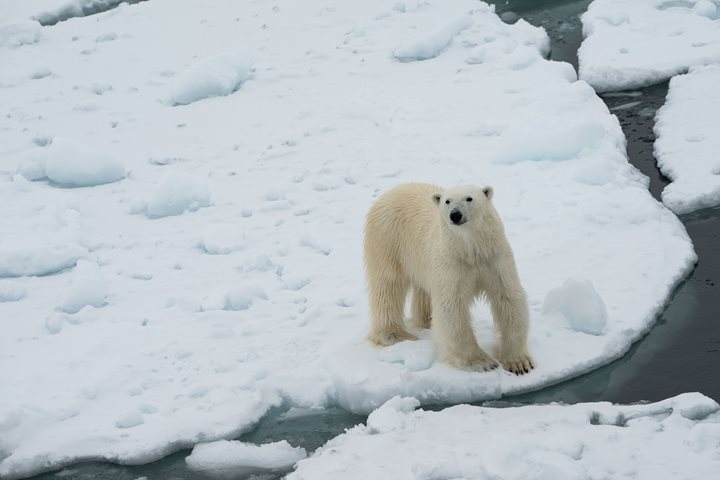As we were approaching our destination after having turned over the westernmost corner of Norway during the night, the seas became calmer and calmer. Smøla is a very flat and small island where around 2,000 people live, forming small communities of fishermen along the coastline and farmers in the middle of the island.
There were several options to enjoy today. Some opted for a bus tour to discover one of the fishing villages: Veiholmen, which means “island of fresh water ponds.” These ponds refer to the fresh water that fishermen were using around 150 years ago. Today, the fresh water comes from the mainland of Norway. In turn, Smøla, which is very exposed to the swell of the North Atlantic on its west coast and to winds, produces green energy from a wind park for the mainland. This one can supply enough electricity for 20,000 families. While visiting, we discovered the traditional method of fishing cod and mackerel—wooden rowing boats equipped with sails, benches, and fishing nets.
In the meantime, another group of 8 of us went to sea to try our hand at fishing and caught enough hake and saithe to feed the entire ship! While one more group of hikers went for a walk in nature, where they observed a couple of white-tailed sea eagles.
By visiting Smøla, we traveled in the wake of the first polar explorer, Pytheas of Massalia, who in about 330 BC made a journey comparable to the one Christopher Columbus would one day take. Pytheas left what was Greece at that time (South of France today), sailed along the Hispanic peninsula, chartered the British Isles, and discovered a place “6 days North of the Shetland Islands” close to the frozen sea. He named it Thule. Thule had been at this time the border of the well-known world, the northernmost reached latitude, place of legend and mysteries. We’ll likely never know where Pytheas exactly was but…. among the three possibilities of the legendary Thule we have the islands of Greenland, Iceland and…. Smøla!
This afternoon Paul, our guest speaker, gave a great presentation about the evolution of fisheries in the world, and their ecological issues, followed by a talk from Jim about geology. For dinner, of course, the fish caught this morning was served!







